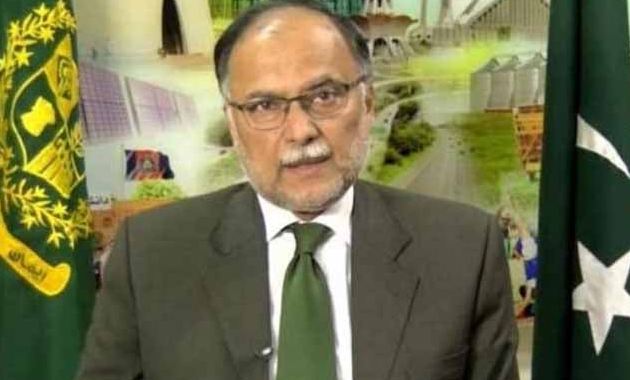Federal Minister for Planning, Development, and Special Initiatives, Ahsan Iqbal, visited Sindh to address key development challenges and outline the federal government’s vision for growth through the “Uraan Pakistan” initiative. The meeting, hosted by the Sindh Planning and Development Board (PnD), was attended by Provincial Minister for Planning and Development Nasir Shah, PnD Chairman Najam Ahmed Shah, and other senior officials.
The high-level meeting reviewed ongoing Public Sector Development Programme (PSDP) projects and discussed delays caused by strategic barriers, pending approvals from the Ministry of Finance, and tax-related challenges. Chairman PSDP emphasized the urgency of approving critical road and infrastructure projects, including collaborations with the National Highway Authority (NHA).
The Sindh People’s Housing for Flood Affectees (SPHF) team presented progress on their housing rehabilitation program, highlighting pending approvals, tax rationalization issues, and indirect cost management concerns per Cabinet directives. Provincial Minister Nasir Shah expressed gratitude for the federal government’s allocation of Rs. 81 billion for Sindh’s development over the last decade.
He thanked Ahsan Iqbal for his consistent support in driving infrastructure and social upliftment in both rural and urban Sindh. Ahsan Iqbal reiterated the federal government’s dedication to addressing Sindh’s developmental needs, acknowledging past neglect. “It’s upon the federal government to undo the plight that surrounds Karachi and Sindh. Development here directly impacts Pakistan’s future,” he said.
Iqbal highlighted the “Uraan Pakistan” initiative, a reform-focused framework encompassing five pillars: Exports, e-Pakistan, Environment, Energy, and Ethics, Equity, and Empowerment.
The federal minister called for export-led provincial competition, urging every province to establish an export development board to boost export quality and management. “Export-led growth will enable debt servicing funds to flow into critical projects, accelerating Pakistan’s progress,” he added. Iqbal also stressed the need for digital transformation, emphasizing AI adoption and technology infrastructure to compete globally. “We must rapidly embrace e-Pakistan and become a leader in technology-driven solutions,” he remarked.
Discussing water and food security, Iqbal warned of looming crises beyond floods and waterlogging, including droughts and malnutrition. He called for a “green revolution” and sustainable water management to combat these threats. He emphasized universal primary education as vital to Pakistan’s success, stating, “Pakistan’s literacy rate stands at 60% but must exceed 80% to build a strong workforce and vibrant economy.” Iqbal highlighted Karachi’s strategic importance, asserting that its development is directly tied to Pakistan’s prosperity. He called for integrated federal and provincial efforts in areas like e-governance, IT, and green initiatives to ensure holistic growth. Concluding his visit, Ahsan Iqbal addressed media queries on federal development plans.
He acknowledged the challenges of past mismanagement but expressed confidence in the government’s reformative approach under Prime Minister Shehbaz Sharif. He described “Uraan Pakistan” as a comprehensive plan targeting agricultural innovation, technological advancement, blue economy development, creative industries, and human resource support, aimed at revitalizing Pakistan’s socioeconomic fabric.









